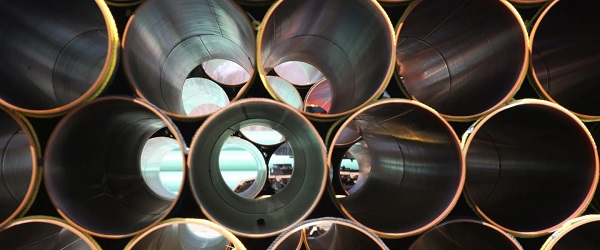Uncategorized
Bar gunman was ‘out of control’ in high school, coach says

MONTCLAIR, Calif. — A second high school coach of the gunman who killed 12 people at a Southern California bar recalled him on Sunday as volatile and intimidating, and said that repeated complaints to school administrators about his
Evie Cluke coached Ian David Long on Newbury Park High School’s track team in 2007 and 2008. In an interview with The Associated Press, she said Long was a “ticking time bomb” who constantly lost his temper, threw tantrums and would scream at coaches when he didn’t like their decisions. She said she once witnessed him assault a fellow coach.
That coach, Dominique Colell, said Long grabbed her rear and midsection after she refused to return a cellphone. Another time, he used his hand to mimic shooting her, Colell said, adding that she feared for herself whenever she was around him.
Cluke said she also witnessed Long pretending to shoot Colell.
“When Dominique turned around and saw that, she turned pale as a ghost and it was very, very scary.” Cluke said. “Just sadistic. … He was out of control. He would scream and cuss and his face would turn bright red and people would actually back away from him.”
Long, a 28-year-old former Marine machine-gunner who served in Afghanistan, opened fire during college night at the Borderline Bar and Grill in Thousand Oaks on Wednesday night. He killed 11 people and a police officer who responded, and then fatally shot himself, police said.
Authorities have not determined a motive.
Colell kicked Long off the track team immediately after he assaulted her, but she and Cluke said the boy’s track coach urged her to reconsider because that could compromise Long’s goal of joining the Marines. The head track coach, Cluke said, reversed Colell’s decision to throw Long off the team and told her she didn’t have that authority, while the now-retired principal brushed it aside as a one-time incident.
Long rejoined the team after apologizing in front of several coaches and administrators.
Cluke said she, Colell and her father, also a track coach at the school at the time, repeatedly reported Long’s
“You need to do something about this kid. He needs some help.” Cluke said she told administrators. “And they’re like, ‘Well, he’s got a good heart he’ll be fine. Just talk to him.'”
Emails to various administrators at the high school were not immediately answered Sunday. Attempts to get comment by phone and in person from officials at the school and its district were unsuccessful Friday, when both were closed because of a massive and deadly wildfire in the area.
Cluke recalled a time when she and her father sat down with Long for a talk and asked him why he wanted to join the military. His answer, she said, “is burned in my soul.”
“He said he wanted to be in the Marines because he wanted to go fight in the war for our country and he wanted to kill for our country,” she said. “When you hear somebody say they want to be in the military because they want to kill people in the name of our country, that’s chilling. It chilled me right down to my bones.”
She said it’s time for school administrators across the country to take
“It’s not the military or video games or music that causes this,” she said. “It’s the inaction of people in authority.”
She said that if other coaches and school administrators had acted following complaints about Long, “he could’ve gotten help and 12 innocent people wouldn’t be dead now.”
“The warning signs were there,” she said.
Amanda Lee Myers, The Associated Press
Uncategorized
Trump Admin Establishing Council To Make Buildings Beautiful Again


From the Daily Caller News Foundation
By Jason Hopkins
The Trump administration is creating a first-of-its-kind task force aimed at ushering in a new “Golden Age” of beautiful infrastructure across the U.S.
The Department of Transportation (DOT) will announce the establishment of the Beautifying Transportation Infrastructure Council (BTIC) on Thursday, the Daily Caller News Foundation exclusively learned. The BTIC seeks to advise Transportation Secretary Sean Duffy on design and policy ideas for key infrastructure projects, including highways, bridges and transit hubs.
“What happened to our country’s proud tradition of building great, big, beautiful things?” Duffy said in a statement shared with the DCNF. “It’s time the design for America’s latest infrastructure projects reflects our nation’s strength, pride, and promise.”
“We’re engaging the best and brightest minds in architectural design and engineering to make beautiful structures that move you and bring about a new Golden Age of Transportation,” Duffy continued.
Mini scoop – here is the DOT’s rollout of its Beautifying Transportation Infrastructure Council, which will be tasked with making our buildings beautiful again. pic.twitter.com/
9iV2xSxdJM — Jason Hopkins (@jasonhopkinsdc) October 23, 2025
The DOT is encouraging nominations of the country’s best architects, urban planners, artists and others to serve on the council, according to the department. While ensuring that efficiency and safety remain a top priority, the BTIC will provide guidance on projects that “enhance” public areas and develop aesthetic performance metrics.
The new council aligns with an executive order signed by President Donald Trump in August 2025 regarding infrastructure. The “Making Federal Architecture Beautiful Again” order calls for federal public buildings in the country to “respect regional architectural heritage” and aims to prevent federal construction projects from using modernist and brutalist architecture styles, instead returning to a classical style.
“The Founders, in line with great societies before them, attached great importance to Federal civic architecture,” Trump’s order stated. “They wanted America’s public buildings to inspire the American people and encourage civic virtue.”
“President George Washington and Secretary of State Thomas Jefferson consciously modeled the most important buildings in Washington, D.C., on the classical architecture of ancient Athens and Rome,” the order continued. “Because of their proven ability to meet these requirements, classical and traditional architecture are preferred modes of architectural design.”
The DOT invested millions in major infrastructure projects since Trump’s return to the White House. Duffy announced in August a $43 million transformation initiative of the New York Penn Station in New York City and in September unveiledmajor progress in the rehabilitation and modernization of Washington Union Station in Washington, D.C.
The BTIC will comprise up to 11 members who will serve two-year terms, with the chance to be reappointed, according to the DOT. The task force will meet biannually. The deadline for nominations will end Nov. 21.
Uncategorized
New report warns WHO health rules erode Canada’s democracy and Charter rights

The Justice Centre for Constitutional Freedoms has released a new report titled Canada’s Surrender of Sovereignty: New WHO health regulations undermine Canadian democracy and Charter freedoms. Authored by Nigel Hannaford, a veteran journalist and researcher, the report warns that Canada’s acceptance of the World Health Organization’s (WHO) revised International Health Regulations (IHR) represents a serious erosion of national independence and democratic accountability.
The IHR amendments, which took effect on September 19, 2025, authorize the WHO Director-General to declare global “health emergencies” that could require Canada to follow directives from bureaucrats in Geneva, bypassing the House of Commons and the will of Canadian voters.
The WHO regards these regulations as “binding,” despite having no ability or legal authority to impose such regulations. Even so, Canada is opting to accept the regulations as binding.
By accepting the WHO’s revised IHR, the report explains, Canada has relinquished its own control over future health crises and instead has agreed to let the WHO determine when a “pandemic emergency” exists and what Canada must do to respond to it, after which Canada must report back to the WHO.
In fact, under these International Health Regulations, the WHO could demand countries like Canada impose stringent freedom-violating health policies, such as lockdowns, vaccine mandates, or travel restrictions without debate, evidence review, or public accountability, the report explains.
Once the WHO declares a “Pandemic Emergency,” member states are obligated to implement such emergency measures “without delay” for a minimum of three months.
Importantly, following these WHO directives would undermine government accountability as politicians may hide behind international “commitments” to justify their actions as “simply following international rules,” the report warns.
Canada should instead withdraw from the revised IHR, following the example of countries like Germany, Austria, Italy, Czech Republic, and the United States. The report recommends continued international cooperation without surrendering control over domestic health policies.
Constitutional lawyer Allison Pejovic said, “[b]y treating WHO edicts as binding, the federal government has effectively placed Canadian sovereignty on loan to an unelected international body.”
“Such directives, if enforced, would likely violate Canadians’ Charter rights and freedoms,” she added.
Mr. Hannaford agreed, saying, “Canada’s health policies must be made in Canada. No free and democratic nation should outsource its emergency powers to unelected bureaucrats in Geneva.”
The Justice Centre urges Canadians to contact their Members of Parliament and demand they support withdrawing from the revised IHR to restore Canadian sovereignty and reject blind compliance with WHO directives.
-

 Business2 days ago
Business2 days ago‘TERMINATED’: Trump Ends Trade Talks With Canada Over Premier Ford’s Ronald Reagan Ad Against Tariffs
-

 Uncategorized1 day ago
Uncategorized1 day agoTrump Admin Establishing Council To Make Buildings Beautiful Again
-

 Energy2 days ago
Energy2 days agoB.C. premier’s pipeline protestations based in fallacy not fact
-

 Frontier Centre for Public Policy17 hours ago
Frontier Centre for Public Policy17 hours agoCanada Needs a Mandatory National Service
-

 Economy13 hours ago
Economy13 hours agoTop Scientists Deliberately Misrepresented Sea Level Rise For Years
-

 Frontier Centre for Public Policy18 hours ago
Frontier Centre for Public Policy18 hours agoChurches Are All That Stands Between Canada And Tyranny
-

 Alberta18 hours ago
Alberta18 hours agoAlberta introduces bill allowing province to reject international agreements
-

 Business18 hours ago
Business18 hours agoCarney government risks fiscal crisis of its own making








